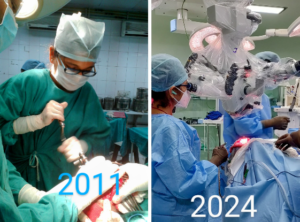Neck pain in women can result from various factors, including poor posture, muscle strain, and injuries. Women may experience neck pain due to ergonomic issues, such as working long hours at a computer or carrying heavy bags. Hormonal changes, stress, and conditions like arthritis can also contribute. Symptoms often include stiffness, discomfort, and pain that may radiate to the shoulders or headaches. Treatment options typically involve physical therapy, stretching exercises, and pain relief medications.
What are the common causes for neck pain in women
Common causes of neck pain in women can vary widely and often stem from daily habits and physical conditions:
- Poor Posture: Habitual slouching or leaning over electronic devices creates a strain on the neck muscles, leading to discomfort and stiffness that can intensify over time.
- Muscle Strain: Everyday activities, such as lifting heavy objects, sleeping in an awkward position, or spending extended periods sitting in one position, can cause muscle tension and pain in the neck.
- Injuries: Accidents, falls, or sports-related incidents can result in whiplash—a sudden jerking motion that affects the neck—leading to acute pain and limited mobility.
- Cervical Degeneration: As women age, the cervical spine can undergo degeneration, resulting in osteoarthritis or disc herniation, which can cause persistent pain and discomfort in the neck region.
- Stress and Tension: Emotional stress often manifests physically, causing muscles in the neck and shoulders to tighten, leading to a feeling of heaviness and increased pain.
- Medical Conditions: Various conditions, such as fibromyalgia and rheumatoid arthritis, can contribute to chronic neck pain, often accompanied by additional symptoms like fatigue or joint stiffness.
- Repetitive Movements: Engaging in activities that require frequent neck motion—such as certain sports, manual labor, or even prolonged phone use—can lead to muscle strain and discomfort.
Understanding these underlying causes is crucial for developing an effective approach to treatment and relief.
Neck pain in women: When to consult neurosurgeon Dr.Vishakha?

Neck pain in women can vary in severity and duration, and while many cases can be managed with conservative treatments, certain signs may indicate the need to consult a neurosurgeon. Consider reaching out for a professional evaluation if you experience:
Severe or Persistent Pain: If neck pain is intense and does not improve with rest or over-the-counter medications, it may warrant further investigation.
Radiating Pain: Pain that spreads down the arms, into the hands, or throughout the shoulders could indicate nerve involvement, necessitating a specialist’s assessment.
Numbness or Tingling: If you experience numbness, tingling, or weakness in the arms or hands, this could suggest pressure on the nerves or spinal cord.
Loss of Function: Difficulty with daily activities, such as turning your head or performing basic tasks, may require surgical evaluation if it hampers your quality of life.
Bladder or Bowel Dysfunction: Sudden changes in bladder or bowel control, known as cauda equina syndrome, need immediate medical attention and could signify a serious issue.
Trauma: A history of trauma, such as a fall or car accident, followed by neck pain, should be evaluated promptly to rule out fractures or other serious injuries.
Signs of Infection: Fever, chills, or unexplained weight loss accompanying neck pain may indicate an infection and require immediate medical intervention.
If you notice any of these warning signs, consulting a Dr.Vishakha can help ensure you receive the appropriate care and treatment for your neck pain.
Role of a neurosurgeon Dr.Vishakha in treating neck pain in women
Neurosurgeon Dr.Vishakha can offer several treatment options for neck pain in women, particularly when conservative measures are insufficient or when addressing more serious underlying conditions. These treatments may include:
- Diagnosis and Assessment: Initially, Dr.Vishakha will conduct a thorough evaluation, including a physical examination and imaging studies such as MRI or CT scans, to determine the cause of the neck pain.
- Medication Management: While neurosurgeons primarily focus on surgical interventions, they can also recommend or prescribe medications, including anti-inflammatory drugs, muscle relaxants, or pain relievers, to help manage pain.
- Physical Therapy: The surgeon may refer patients to physical therapy for a tailored exercise program aimed at strengthening neck muscles, improving flexibility, and enhancing posture.
- Minimally Invasive Procedures: For conditions like herniated discs or stenosis, Dr.Vishakha may perform minimally invasive techniques, such as endoscopic discectomy, where only small incisions are made to alleviate pressure on the nerves.
- Surgery: In more severe cases, such as significant spinal compression or structural abnormalities, the neurosurgeon Dr.Vishakha might recommend surgical interventions, including:
- Discectomy: Removal of a herniated disc that is pressing on spinal nerves.
- Laminectomy: Removal of part of the vertebra to relieve pressure on the spinal cord.
- Spinal Fusion: Joining two or more vertebrae to stabilize the spine and reduce pain.
- Postoperative Rehabilitation: After surgery, the neurosurgeon Dr.Vishakha usually coordinates follow-up care and rehabilitation to ensure proper healing and recovery, which may include ongoing physical therapy.
- Lifestyle Recommendations: Dr.Vishakha may provide guidance on lifestyle modifications, ergonomic adjustments, and exercises to help prevent recurrence of neck pain.
By utilizing a combination of these strategies, Dr.Vishakha can effectively address neck pain in women, ensuring a comprehensive approach tailored to each individual’s needs.
What happens if women with neck pain delay consulting Dr.Vishakha?

Delaying consultation with Dr.Vishakha for neck pain can lead to several potential complications and adverse outcomes, including:
- Neck pain may progressively worsen over time, leading to increased discomfort, stiffness, and reduced mobility. Ignoring symptoms can transform manageable pain into a chronic condition that is more difficult to treat.
- If the neck pain is caused by a condition that compresses the nerves, such as a herniated disc or cervical stenosis, delaying treatment could lead to permanent nerve damage, resulting in long-term weakness, numbness, or tingling in the arms and hands.
- Conditions like spinal cord compression can become life-threatening if not addressed promptly. Delaying care may increase the risk of serious complications, including paralysis or loss of bowel and bladder control.
- Chronic neck pain can affect daily activities, work, and overall quality of life. Delaying treatment may lead to increased frustration, anxiety, and even depression as individuals struggle to cope with persistent pain.
- Early intervention can often result in less invasive treatments. Delaying consultation may lead to a situation where more complex procedures, such as major surgery, become necessary later on.
- The longer an issue is left untreated, the less effective conservative treatments (such as physical therapy or medication) may become, making recovery more challenging.
- Prolonged pain and associated complications can lead to increased healthcare costs due to emergency visits, extensive treatment plans, and possible surgeries that could have been avoided with early intervention.
In summary, timely consultation with Dr.Vishakha can be crucial in effectively managing neck pain and preventing potential long-term consequences. Recognizing the importance of early evaluation can lead to better outcomes and improved overall health.
About Dr Vishakha:
Dr Vishakha Basavraj Karpe is a highly skilled senior consultant at Rainbow Children’s Hospital in Banjara Hills and Hydernagar Hyderabad. She is known for her comprehensive care approach and is one of the few dedicated leading paediatric neurosurgeons in the city and India with over ten years of extensive experience in pediatric neurosurgery. Her expertise includes treating hydrocephalus, spinal dysraphism, craniosynostosis, paediatric brain infections, brain and spine tumours and stroke surgery. She has a special interest in craniosynostosis surgery, which is done only in very few centres in India.
Proficiency of Dr Vishakha:
-
- Hydrocephalus (increased fluid in the brain): The procedure involves an endoscopic third ventriculostomy and CSF diversion (VP shunt) to treat complex hydrocephalus.
- Craniosynostosis (abnormal head shape due to untimely cranial sutures fusion) surgeries: Helmet therapy is a technique that is used in both endoscopic and open surgery.
- Spinal dysraphisms(Spina Bifida)- (spinal abnormalities present by birth) – surgical repair
- Encepahaocles repair surgery.
-
- Vascular conditions and stroke surgeries: revascularization surgeries for moya moya disease.
- Pediatric brain and spine tumour surgeries.
-
- Pediatric brain and spine infection surgeries: Endoscopic and open surgeries for brain and spine infections.
- Pediatric traumatic brain and spinal injury.
- Antenatal counselling for congenital fatal neurosurgical conditions.





